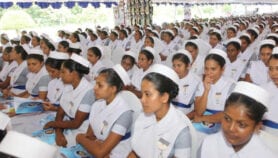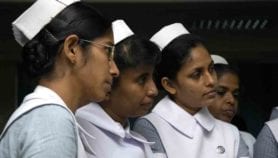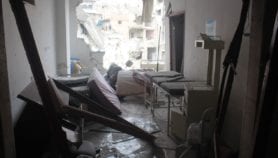By: Adel Fakhir
Send to a friend
The details you provide on this page will not be used to send unsolicited email, and will not be sold to a 3rd party. See privacy policy.
[BAGHDAD] The Iraqi government plans to spend more than US$9 billion over the next five years to rebuild its scientific research infrastructure — largely damaged by the recent war — and bolster science and technology education, according to the country’s minister of higher education and scientific research, Ali Al-Adeeb.
The plans involve establishing 12 universities and 28 research centres, Al-Adeeb said during the closing ceremony of Baghdad’s Second Forum for Iraqi Universities last month (16 October). They also involve overhauling facilities in existing universities that have a scientific focus.
"The opening of new facilities and the renewal of old ones aims to bring the number of science and engineering students and researchers up to the rate in developed countries," he said.
Abdul Salam AlJmas, director of research and development at the Ministry of Higher Education & Scientific Research, tells SciDev.Net that the new universities will be distributed across all Iraqi provinces, and that some will specialise in science, medicine, engineering and agriculture.
AlJmas says that work is expected to begin this year, starting with the new University of Ibn Sina in Baghdad and improvements to the existing universities of Karbala and Mosul.
He says the plan includes both equipping the new universities, and renewing and updating the equipment in all Iraqi universities that specialise in science and engineering. He describes this step as "the missing link in developing the scientific research sector because Iraqi universities have not had any new equipment since the early 1980s".
According to AlJmas, the plan also includes allocating US$70 million to train research and academic staff, such as sending them abroad for up to three months for education and training.
Iraqi professor Mohamed Al-Rubeai, head of bioprocess engineering and director of the Cell Culture Engineering Research Centre at University College Dublin tells SciDev.Net that "Iraqi public universities today are experiencing a crisis because of the shortage of highly trained faculty members and researchers: those that possess vast experience and have an international reputation".
He adds that huge financial resources are needed to retrain scientists in Iraq and to offer attractive jobs to encourage expatriate Iraqi scientists to return home. This step should be prioritised over establishing the new universities because the facilities may otherwise fail to hire high-quality staff, he warns.
Nahla Mandalawi, professor of psychology at the University of Baghdad, argues that the plan "is ambitious and could help improve the scientific research sector in Iraq, but only if it is implemented".
She says that such plans should not be subject to political interference, "which is the method used today to stop and drop many development projects in Iraq".
Before the Gulf War in 2003, Iraq had 20 universities and 60 research centres. It currently has 28 and 72 respectively. By implementing the new five-year plan, Iraq will have 40 universities and 100 research centres.













